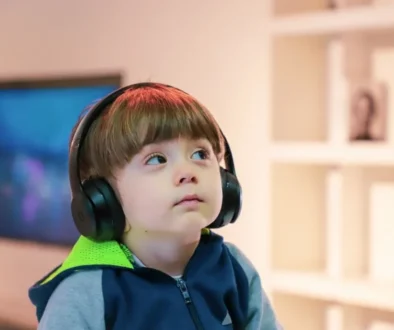What Not to Do After Getting an Autism Diagnosis for Your Child
When there’s a big change in your life, like getting an autism diagnosis, it can be hard to know what to feel. You might feel guilty for feeling negative emotions, because it seems like that means you’re not happy to have answers or that you’re not feeling positive about the future.
We’re here to tell you that you can feel however you want and there’s no right answer. The only thing we don’t want you to feel is hopeless because our entire team is here for you. Want to know what to do next? Follow the steps below.
1. Don’t Panic
Autism is a spectrum and now that you have a diagnosis, a whole world of options, information, and support has opened up to you. In fact, if you’ve been suffering from symptoms and feeling like you’ve been unable to help your child, the diagnosis may be the best thing to happen to you and your child.
We know it’s hard to see this as a blessing right now, but having answers is better than not having any. That said, it’s okay to be upset. Yes, it means that there are challenges ahead and that your life may not look the way you planned, and there’s a grieving process that goes with that realization.
Being upset, sad, mad, or overwhelmed that you and your family are facing sometimes-hard roads ahead is totally normal. It doesn’t mean you don’t love your child or that you won’t do everything you can to help them. Let yourself process this information however you need to.
2. Join a Support Group
There are support groups for autism just like there are for mothers of children with any other diagnosis. These women, and families, are going to be your rocks. They’ve gone through what you’re going through right now and remember when it was their family grappling with getting an autism diagnosis.
They’re great people to vent to, ask for support from, and they’ll become some of your best friends. You can find these support groups on Facebook, at local community centers, and through our clinic.
When you’re joining a support group, you’ll have the urge to join every group you can find – because you’ll want all the support you can get. But over time you’ll realize that different groups have different values and you’ll lean towards some more. It’s okay to leave groups you don’t identify with, but be sure to let the organizer know.
Be wary of groups with membership Fees
Some groups will charge you a joining fee, and if you’re willing to pay it, you at least want to know what it is going towards. It may be worth it if the group is led by an autism expert or professional, but there are enough free groups around that you shouldn’t have to worry about it.
Talk to your physician or case manager about finding a group that’s they think will be the best fit for you!
3. Decide Which Friends and Family to Tell First
Who your real friends and family are will become clear in this time – they always do in times of change. While you’ll want love and support, you don’t have to announce your child’s diagnosis to the entire world. Not that there’s any shame in it, but what you share about your life is your business, whether Facebook wants you to believe it or not.
The friends and family you do tell may need some education on what this diagnosis means. Those familiar with autism know it’s a spectrum, and may only have experience with kids who are on one side or another.
Your doctor and care team can help you find the right educational materials to give them, but do be prepared to answer a few questions when you have the discussion. They’ll likely want to know (1) how you’re feeling, (2) what this means for your child developmentally, emotionally, and academically, and (3) hopefully, how they can be the best friend possible to you and your family.
For those family members who aren’t as familiar, it’s a good idea to start off the conversation with how glad you are to finally have answers, how you’re feeling about it now, and what your outlook and attitude is. This will give your friends and family members the social cues they’ll need to support you the right way.
4. Think About Costs Going Forward
No matter how good your insurance is, there are going to be some non-covered autism-related costs coming up. The amount depends on where your child is on the spectrum and will change over time.
If you’re able to afford a caretaker, even if it’s just for two afternoons a week, invest in one. Not only is it a tax write-off (childcare) but it will give you time to yourself, or time to focus solely on your other children, since they may feel a little out-of-the-spotlight right now.
5. Invest in a Couples Therapist
One of the investments you’ll want to make moving forward is in a couples therapist. Unfortunately, parents with Autistic children are 10-20% more likely to get divorced (on top of the current divorce rate). Starting therapy before the marriage issues start (or solving them early) will go far in helping you not be a statistic.
Feeling surprised by this statistic? It’s emotionally taxing to be a parent, a spouse, and a caretaker for someone with special needs all at the same time. Therefore, it’s easy for romantic relationships to take a backseat and slowly fade away.
6. Ask Your Care Team for Suggestions
If you child is non-verbal, apps with pictures and requests can help a lot. If they’re hard to understand, it may be worth learning a few different hand signs. Each child and each diagnosis is different, which is why it’s so important to set goals for you and your child with your doctor.
Setting realistic goals for your autism journey will help you avoid disappointment and frustration. Small, measurable, realistic goals will give you something to do going forward and leave lots of room for your child to amaze you.
Creating the Perfect Care Team After Getting an Autism Diagnosis
There’s nothing more important than having a care team you trust. We hope that you’ll let us be that team for you, in whatever capacity we can.
If you haven’t met us yet, we’ll be with you from getting an autism diagnosis to starting your child back in school – or whatever your big goal is. Want to work together? Give us a call!



